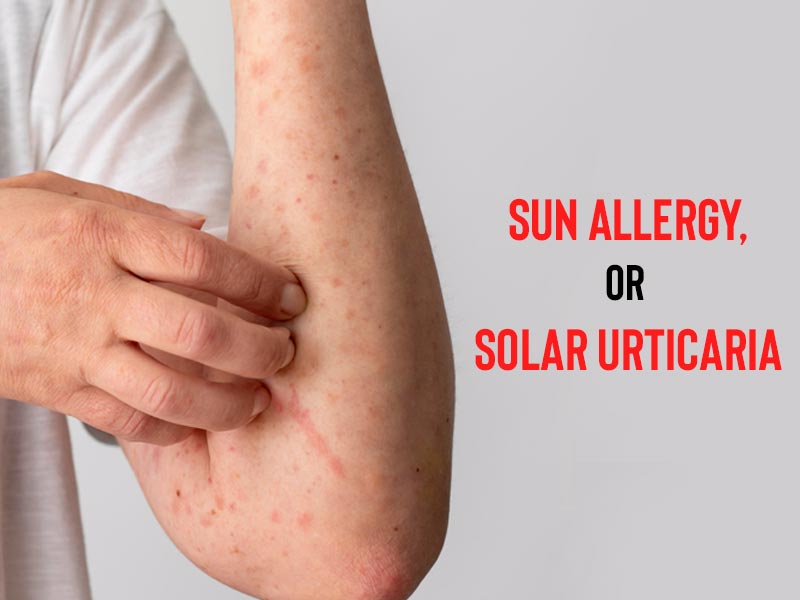
You might have heard about dust allergy, or the one to pollen, or certain foods or drugs. But, do you know that some people are allergic to the sun? Upon exposure to sunlight, they develop red, itchy rashes on their skin that feel hot when touched. It can be a crippling condition, given it is difficult to protect oneself from the sun at all times. Not just that, sunlight is the source of vitamin D, which is important for bone health. By preventing exposure to sunlight, you are preventing your intake of vitamin D, too. So, why do sun allergies happen? How can it be treated? And most importantly, how can one prevent it from happening? For answers to these questions, Onlymyhealth spoke to Dr. Vinay Singh, Senior Consultant, Dermatology, Paras Hospitals, Gurugram.
Table of Content:-
Sun Allergy: Meaning & Cause(s)
Sun allergy, also called solar urticaria, affects a few individuals globally. It happens as your blood vessels get sensitive to sunlight. Hence, upon exposure to the sun’s rays, the skin develops rashes. These are itchy and can even cause a burning sensation. These also feel warm when touched, explained Dr. Singh.

(Photo Credit: Fitneass)
Sun allergy can happen due to multiple causes, such as:
- Certain individuals are genetically predisposed to it.
- The use of certain prescribed drugs can make you sensitive to sunlight.
- There are foods, too, that can cause sun allergy. For example, some individuals who go out in the sun after eating food with Ajinomoto in it develop this allergy.
- Use of certain cosmetics, skincare products, and perfume.
Also read: What Causes Allergies: Risk Factor, Complications, Preventive Tips
Treatment For Sun Allergy, Or Solar Urticaria
The treatment for a sun allergy is quite simple, said Dr. Singh. However, do not self-medicate yourself, he warned. If you develop sun allergies frequently, go to a dermatologist. The expert will examine you, determine the cause, may recommend some tests, figure out the cause(s) and prescribe the treatment accordingly. Simple drugs such as antihistamines, some low-dose steroids, and other medications are given. However, do not self-medicate. In some cases, the doctor might also send you for a biopsy. But don’t be scared. It’s not for cancer but for ruling out a disease called lupus.
How To Prevent Sun Allergy?

(Photo Credit: Unsplash)
The red itchy rashes can be difficult to manage. The condition can interfere with your day-to-day functioning as well. Hence, it’s better to take steps to prevent yourself from sun allergy rather than taking drugs to treat it later. There are simple ways to protect against sunlight, and hence allergy, such as:
- Wear full-sleeved cotton clothes. The idea is to cover as much area of your body as possible.
- Carry an umbrella or wear a hat when going out in the sun.
- Wear sunscreen, if not allergic. Also, use it the right way. Apply sunscreen for at least 30 minutes before going out in the sun. Also, re-apply after every two hours.
- Seek shade wherever possible.
Also read: Do You Get Enough Sunlight Exposure? Check Out Its Health Benefits And Side Effects
The idea is to protect yourself from sunlight as much as possible. If you suffer from it frequently, consult a doctor and follow the treatment accordingly.
(With inputs from Dr. Vinay Singh, Senior Consultant, Dermatology, Paras Hospitals, Gurugram)
Photo Credit: Freepik
Also watch this video
How we keep this article up to date:
We work with experts and keep a close eye on the latest in health and wellness. Whenever there is a new research or helpful information, we update our articles with accurate and useful advice.
Current Version